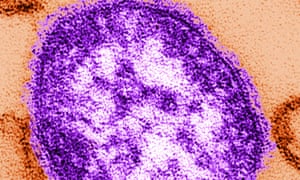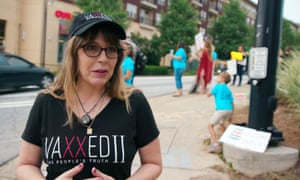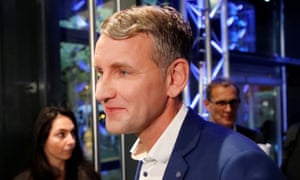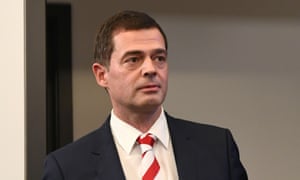The Guardian - Back to home
Measles wipes out immune system's memory, study finds
Scientists say threat posed by measles is ‘much greater than we previously imagined’
Hannah Devlin Science correspondent
Thu 31 Oct 2019
 Measles affects more than 7 million people a year and causes more than 100,000 deaths. Photograph: Cynthia Goldsmith/Centers for Disease Control/PA
Measles affects more than 7 million people a year and causes more than 100,000 deaths. Photograph: Cynthia Goldsmith/Centers for Disease Control/PA
Measles causes long-term damage to the immune system, leaving children who have had it vulnerable to other infections long after the initial illness has passed, research has revealed.
Two studies of unvaccinated children in an Orthodox Protestant community in the Netherlands found that measles wipes out the immune system’s memory of previous illnesses, returning it to a more baby-like state, and also leaves the body less equipped to fight off new infections.
Measles eliminated between 11% and 73% of children’s protective antibodies, the research found.
“We’ve found really strong evidence that the measles virus is actually destroying the immune system,” said Prof Stephen Elledge, a geneticist at Harvard Medical School and co-author of one of the papers. “The threat measles poses to people is much greater than we previously imagined.”
Globally, measles affects more than 7 million people each year and causes more than 100,000 deaths. Reduced vaccination rates have led to a nearly 300% increase in measles infections since 2018.
The UK recently lost its measles-free status because of the fall in rates of MMR (measles, mumps and rubella) immunisation. Coverage of 95% of the population is considered necessary to prevent outbreaks. Among children aged 24 months in England, vaccination dropped from 91.2% in 2017-18 to 90.3% in 2018-19, the lowest rate since 2010.
Measles is highly contagious and can be spread when someone with the virus coughs, sneezes or exhales. Once inside the respiratory tract, the virus penetrates immune cells that sit at the interface between the lungs and bloodstream. From there, the virus replicates and spreads to immune cells throughout the body.
Previously, scientists had inferred a longer-term impact on the immune system because deaths from other infections were seen to go up after a measles outbreak, and because the virus directly attacks the immune system. The latest work for the first time uncovers the extent of the damage.
The researchers recruited volunteers from three schools in the Netherlands. They took blood samples from healthy, un-vaccinated children aged four to 17 and followed up with 77 of the children who were infected in a measles outbreak in 2013 for repeat sampling.
The first paper, led by Velislava Petrova, of the Wellcome Sanger Institute and Cambridge University, says measles erodes two separate lines of defence of the immune system.
To tackle previously unseen infections, the immune system relies on constantly pumping out a diverse range of immune cells – thousands of different varieties, each with slightly different receptors on their surfaces, with a collective ability to recognise almost any pathogen.
“The more diverse range of them we have, the better,” said Petrova. However, after measles, the children had a far more restricted range.
The immune system also creates long-lived memory cells, which remain permanently in circulation, allowing the body to rapidly recognise and eliminate previously encountered infections.
However, after measles, a substantial proportion of immune memory cells had disappeared from the children’s blood, in what the scientists described as “immune amnesia”. This could even mean that children who become infected with measles may need to be revaccinated for previous diseases.
“We show that measles directly causes the loss of protection to other infectious diseases,” said Petrova.
The children in the study were followed up around six weeks after their measles infection, and so it has not yet been established how long it would take for the immune system to recover.
“One can speculate that it’s very likely to recover, based on recovery seen in people on immunosuppressive drugs,” said Velislava. “Maybe after five years you would recover.”
Elledge’s team looked at antibodies in the blood (the proteins produced by immune cells) and found that 11% to 73% of the antibody memory bank had been erased after measles.
The research found that the MMR vaccine itself did not produce immune suppression, meaning that recipients get the benefit of lifelong immunity to measles infection without the damaging effects of natural infection.
Petrova said that addressing scepticism around vaccines was a complex task. “We shouldn’t think that scientific data is enough to convince people,” she said. “We need to bring enough reliable information to people at the point of care. Not create polarisation in society around this.”
Jonathan Ball, a professor of molecular virology at Nottingham University, who was not involved in the work, said: “In our current climate of falling vaccine uptake rates, this serves as a timely reminder of why MMR immunisation is so important – not only to protect against the viruses the vaccine is designed to target, but also to prevent avoidable follow-on complications that can occur after measles infection.”






